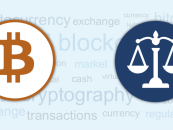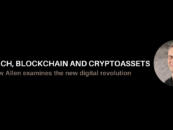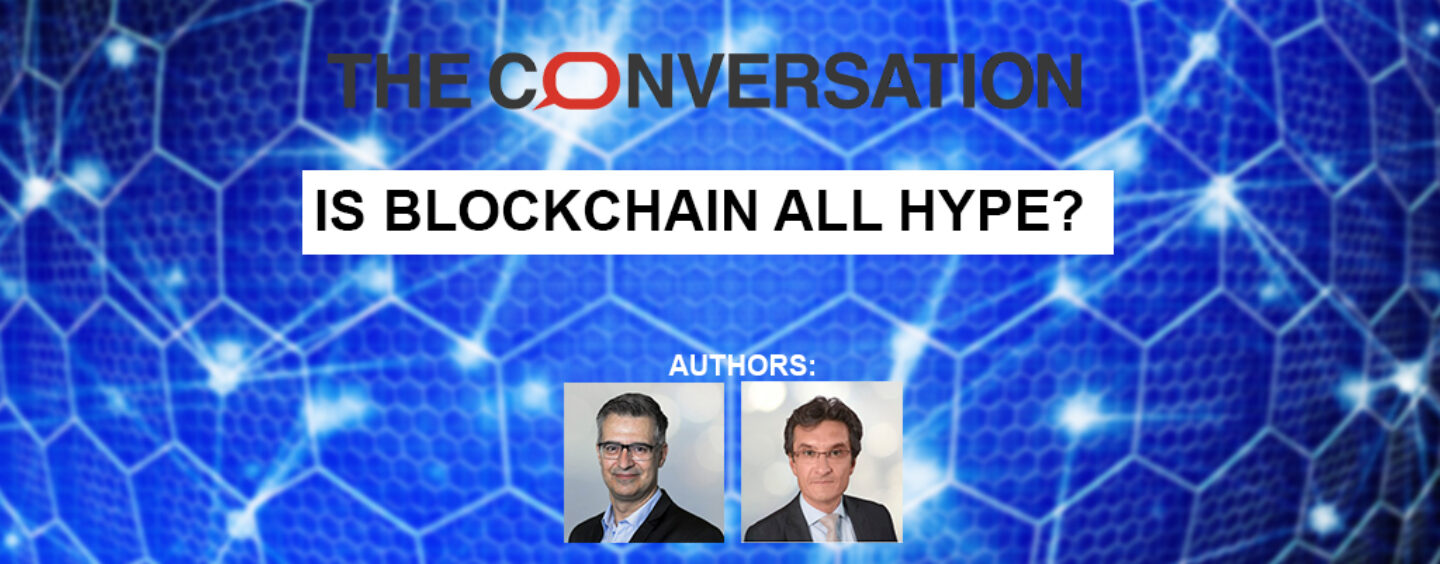
Is Blockchain all Hype? A Financier and Supply Chain Professor Discuss
by Prof. Carlos Cordon February 20, 2019This is an article from The Conversations’s Head to Head, a series in which academics from different disciplines chew over current debates. Today Prof Arturo Bris and Prof Carlos Cordon discuss Blockchain, both are professors at IMD Business School.
Arturo Bris: Have you ever watched footage from the early 1980s of people trying to explain the internet? They’re skeptical and confused and have no idea how to say “@”, which is comical given what we now take for granted. But that’s where we are with blockchain now. People don’t believe in it because they don’t understand it.
Blockchain is a technology with two ingredients: the first is a distributed ledger, meaning a database with identical copies held by everyone in a network. There is no intermediary, no central data depository. The second is a consensus algorithm (and this is the true innovation in the technology): the ability to digitally agree on any change in the data. It is the set of decision rules by which any new entry in the database is accepted and then shared by everyone.
The consensus algorithm will be different for every blockchain – some work on a simple majority rule, some (such as Bitcoin) have a subset of members paid to fulfil that role, and others have much more complicated arrangements. The structure of the database is also particular, because it is structure as a sequence of entries (a ledger), not a deposit.
If you don’t understand blockchain, get educated, because it’s an amazing new technology that’s going to revolutionise the world. It’s going to monetise and unlock value that today is hidden. The social impact is going to be massive. It’s going to permit new avenues for human interaction that didn’t exist before.
Carlos Cordon: I’m not sure about that, Arturo. I, for instance, understand what blockchain is, but I don’t believe that it’s going to have the impact you describe.
Blockchain requires having a lot of copies of the same data. This means that you are required to multiply the data storage by, let’s say, 100 times. The same data is stored in 100 places. That might work for something as standard and simple as money: Bitcoin works, for example, because there is just one Bitcoin, not thousands of different products.
But if you think about supply chains, for example, you’re talking about thousands of products. For each product, a lot of information is required, like weight, format, expiry date, composition, etc. This means that blockchain is extremely impractical for many of the applications that its evangelists are proposing.
Amazon isn’t using blockchain. Google isn’t. In fact, none of the top digital giants are, although Amazon has said it’s happy to provide cloud storage for it. The Nobel prize-winning economist Paul Krugman has said that Bitcoin will “set the monetary system back 300 years”.
AB: Krugman also said in 2011 that the Euro would soon disappear, and look where we are today. And, with respect to Google and Amazon, that’s exactly what disruptive technologies are: they are not usually adopted by the established players, because they disrupt their own – established – business models.
And by the way, more and more companies are using blockchain for applications beyond cryptocurrencies. These include music streaming, social networking, commodities trading, property registries – the list goes on. Blockchain is a technology that guarantees full security (it cannot be hacked) because data are already shared by the members of the network, so there is nothing to hack. We are already seeing the transformation moving extremely fast, and that’s why you need to embrace it.
CC: The way blockchain works makes it secure and trustworthy, that much is true. But if we introduce blockchain into supply chains, for example, we’re firstly trying to solve a problem that isn’t there – and, secondly, we’re possibly creating further problems for ourselves.
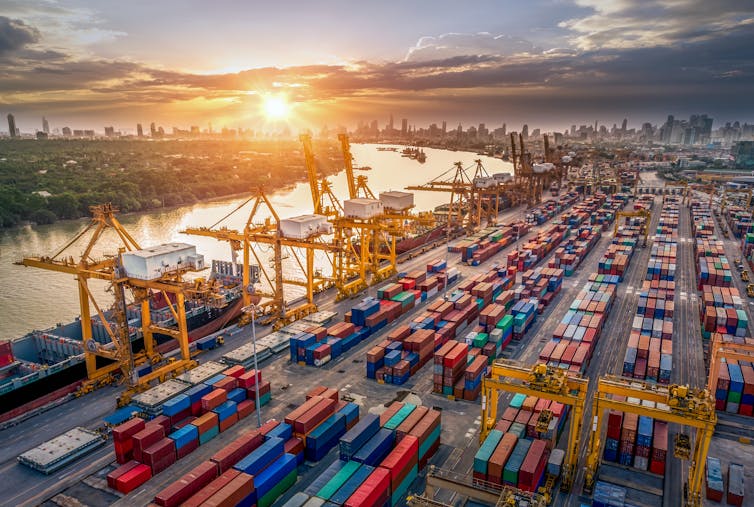
Could blockchain really revolutionise supply chains, as some claim? Travel mania/Shutterstock.com
This is because trust in supply chains generally isn’t an issue. Let’s imagine I’m Unilever or Procter & Gamble. Am I going to try to cheat Walmart or Carrefour? No. We have a certain level of trust. We may disagree, but we don’t cheat. But with blockchain comes complete transparency. And we don’t want that. Not because we don’t trust the other partner, but because we use information to negotiate. Besides, in supply chains we’ve been working on sharing information and data for years. We don’t need new data technologies. It’s already complicated enough.
AB: I have no problem with that. If trust does not need to be formalised, there is no need for blockchain. I don’t think we will use blockchain to manufacture cookware or to design new means of transportation either. But what makes blockchain revolutionary is the transformation of physical assets into digital ones. This is known as tokenization. Cryptocurrencies, for example, are the tokenization of money, but that is only one example. You can tokenize stocks and financial assets, property, music, services – the list goes on. By replicating assets with a digital token, we can facilitate transactions without physical delivery.
CC: Then there’s the challenge of a potential mismatch between the virtual value chain and the physical value chain. You can tokenize assets, but what happens if someone changes the physical product? Blockchain couldn’t have prevented the UK horsemeat scandal, for example, where horsemeat was found in products that supposedly contained only beef.
Meanwhile, the need for storage is going to multiply by an order of magnitude as copies of all these ledgers are held by each individual in a blockchain. And the only people who are going to benefit from that are companies like Amazon, selling cloud storage.
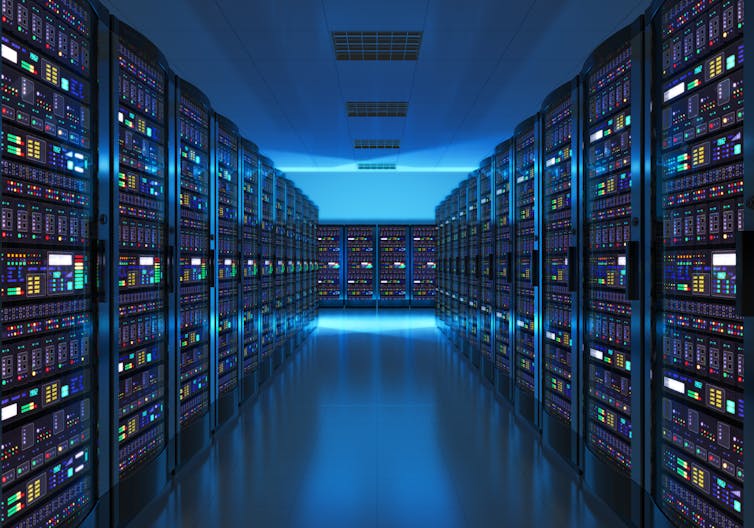
Data storage. Oleksiy Mark/Shutterstock.com
AB: This is a fallacy. In fact, the structure of a blockchain allows us to store the whole database by storing just a small part of it. I know this is difficult to understand. In fact what happens is that, through encryption, we will be able to drastically reduce the size of the entries. Second, because of the sequential nature of the database, and since all entries are linked both to the previous and the next one, we will need to store just the last block(s) of the database.
Overall, I think that we need to think beyond the storage of data and contracts as the main uses of blockchain. Tokenization will transform our transactions. Besides, the lack of need for intermediaries will also transform organisations. We can develop a new type of organisation that is democratic, not in the sense that it doesn’t need a CEO but in the sense of a decentralised autonomous organisation that is super efficient. This is going to be the future.
By monetising assets that we currently do not monetise – such as our social capital, our fitness data, our attention to advertisers – we will add value. And that is only possible through a technology so new and complex that we’re still struggling to explain to each other how it works.
CC: OK. But so far, I have seen no evidence of blockchain being used for truly revolutionary purposes. Walmart is using it to track vegetables. I saw a headline recently: “IBM joins efforts to create the blockchain equivalent of Yellow Pages” – Yellow Pages died 20 years ago, why are they trying to resuscitate that concept? Blockchain is certainly one of the top strategic tech trends at the moment but from looking at what companies are actually doing with it, I don’t think it’s going to change the world.
This article is republished from The Conversation under a Creative Commons license. Read the original article.
*Authors:
Carlos Cordon, Professor of Strategy and Supply Chain Management, IMD Business School
Professor Cordon’s areas of interest are digital value chains, supply and demand chain management, digital lean and process management.
Carlos Cordon is currently developing research and cases in the following areas: the digital journey of traditional companies, digital innovation in value chains, industry 4.0, digital lean, applications of big data in different spaces (healthcare, transportation and FMCG). He is the author of numerous articles and case studies in these fields, and over the past few years has won various prizes for his cases and articles on supply chain management, outsourcing, and process management.
Arturo Bris, Professor of Finance, IMD Business School
Arturo Bris is Professor of Finance at IMD. Since January 2014 he is also leading the world-renowned IMD World Competitiveness Center.
At IMD he directed the Advanced Strategic Management from 2009-2014. He has directed programs for senior executives in several industries and continents. Prior to joining IMD, Professor Bris was the Robert B & Candice J. Haas Associate Professor of Corporate Finance at the Yale School of Management (USA). A Research Associate of the European Corporate Governance Institute, and a member of the Yale International Institute for Corporate Governance, he has worked extensively on issues of Corporate Governance, Financial Regulation, and International Valuation.
Featured image via Pixabay
![]()





